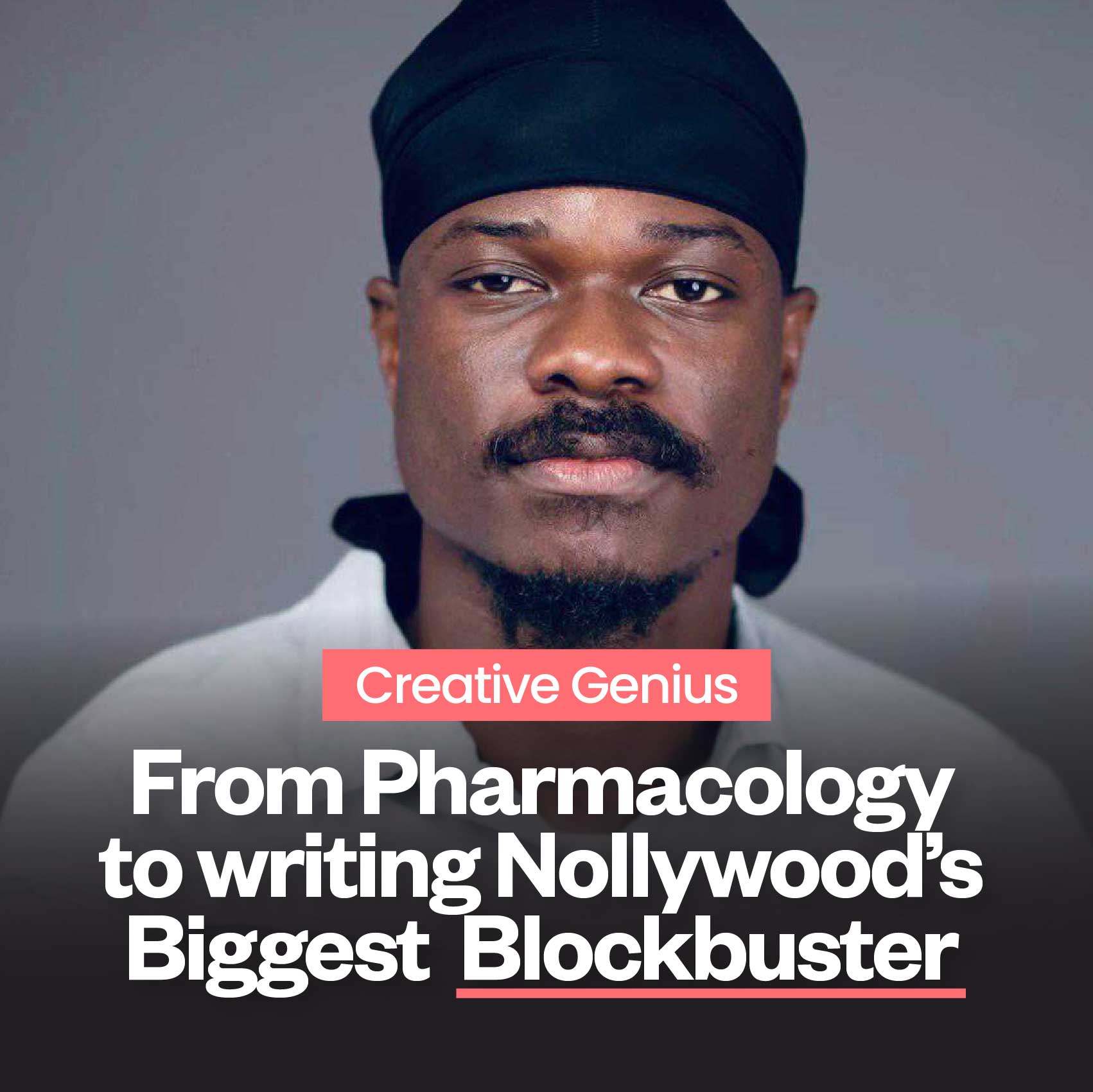Two of the top 3 highest-grossing Nollywood movies between 2020 and 2023 owe their writing to Collins Okoh, a pharmacist turned self-taught screenwriter. When I asked how he felt about his latest work —the widely acclaimed A Tribe Called Judah, which grossed N1bn within 21 days— he said, “ Of course, it feels great, means you are doing good work.” And good work, for him, is writing a story, better than the previous “best”.
Previously, I had spoken with another screenwriter, Ozioma Ogbaji, on what it means to write for Nollywood. But for Collins, we focus on his writing career, coming from a non-creative background, and how he navigates being a writer within the Nigerian creative space.
When did Screenwriting come into the picture for you?
I majored in pharmacology and I worked at the Ministry of Health in Ilorin for a year. But I've always liked writing, even in school, I wrote poems and stories. So, after working for a year in Ilorin, I moved to Lagos and decided to go into writing full-time.
Was it just a decision to leave or you had something waiting for you?
It was a decision to just leave. At the time I left the ministry, I did not have a writing gig or job waiting. I wasn't even a screenwriter when I left. I simply taught myself scripting and that was it.
Considering your background, how was the transition?
It was pretty easy to make that transition. I had written for the most part of my life even in the university, and it didn't feel like I was doing something new. I was simply doing what I liked, and the difference now was that I had more time to do it.
How did you get your first project?
I had this Facebook page where I wrote short stories. At first, I had just a few followers, but the engagement grew and the page became a sort of blog where a lot of people came to read my stories. So, one day I got a call from someone in the industry and he said he liked my stories and suggested I turned them into screenplays. He reached out to Funke Akindele and I was invited to come in and present my stories. She was impressed and I was signed in to write a series for African Magic.
From your experience, what major challenge do new Screenwriters face when they come in?
Being underrated and underpaid are challenges many screenwriters, and not just the new ones, face. And when you start working with established filmmakers, you'll discover there is not enough creative freedom. So, you're mostly forced to write what the producer wants.
What's your creative process like?
I discuss with the originator of the idea and with the story in my head, I just go about my normal activities. Eventually, ideas for the story development just come randomly. Then, I can flesh out the story, and write the synopsis and scenic breakdown before I start scripting.
Do you have a story of your own though?
Yes, I do, but it's not released yet. Most times, producers already have an idea of what they want to do, so my job is to expand it, create more scenes, and develop the characters.
What’s your work structure/routine like?
It varies. Sometimes I'm a scriptwriter; Other times, I'm a script supervisor on set. I have an office space I go to by 8 am till it's late, depending on what I have to do; and there’s always something to do so I stay there till night.
How do you deal with the notorious creative block?
I take a break away from my laptop and move around. I like water bodies so I just go to the beach or sit by a swimming pool and listen to the rushing water. I find that I’m able to think clearly when this happens. Other ways I deal with writer’s block are having conversations with brilliant minds and playing video games.
Let’s talk about money. How well does it come?
I don't know the finances of a lot of screenwriters, and there is no standard figure. I have had someone offer me 60k to write a feature-length movie, and another person offered me 300k to write something similar. So, it varies. It depends on the person you writing for. Most times, you are paid half in advance and your balance at the end. But that’s it; you don’t get paid out of the proceeds of the movie. Royalties are not a Nigerian thing. The producer may give you something to appreciate you, but you are not entitled to it.
Your latest project just became the highest-grossing Nollywood movie of all time. On the flip side, does this bring that pressure to do way better for the next one?
I always think about the need to do better in my next project, but I don’t see it as pressure. It's just natural to aim for something bigger in your next venture.
Subscribe here to the Creative Genius Newsletter to get more stories of creative careers, weekly job updates, and resources to accelerate your career and creativity.
